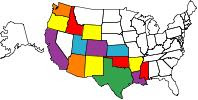For “Scripture Sunday”:
Here is one of the series for children which can be printed, colored and learn the stories of the Bible.
Jesus and the New Testament Passover
“Every year baptized members of the Church of God meet together to observe the Passover in a particular way. Here is why and the Bible story behind it.
PDF to print for family reading with coloring page
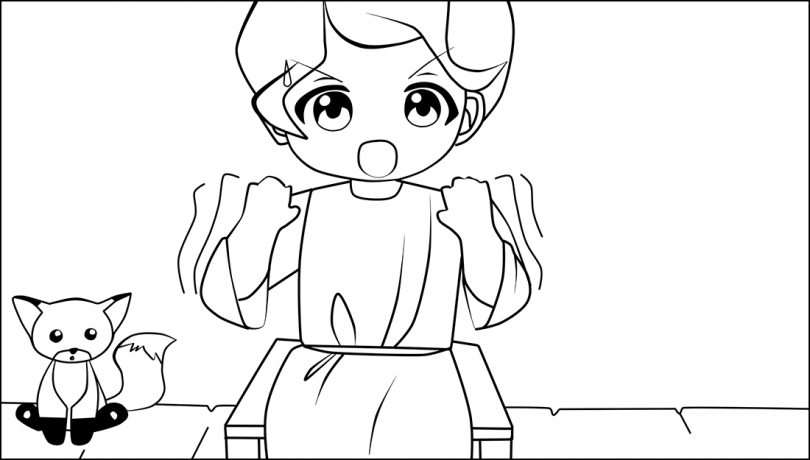
At first Peter did not want Jesus to wash his feet.
Jesus and His family had always kept the Passover, as well as all of God’s annual festivals. But the last Passover Jesus kept was quite different.
First, He shocked His disciples by performing an act of humble service. Then He introduced symbols to remind them of the meaning behind His coming sacrifice.
Three new things
Here are three new things that He did:
He washed their feet. Jesus and the disciples gathered together in a special room at the beginning of the 14th of Abib at twilight. Jesus knew that He would soon be killed, and He said to them, “I have really wanted to eat this Passover with you before I die. I won’t eat it again until it is fulfilled in the Kingdom of God.”
After they had finished eating, Jesus got up and took a towel. He poured water into a basin and began to wash and wipe dry the disciples’ feet. Peter stopped Him and said, “You will never wash my feet.”
Peter was upset because foot washing was a job for the lowest of servants—not for Jesus, the great Teacher. Jesus replied, “If I don’t wash your feet, then you are not a part of Me or the work I am doing.”
Peter loved Jesus and didn’t want to displease Him, so he said, “Then wash my hands and head too!”
Jesus loved Peter too, and He patiently explained, “If I wash your feet, you are clean all over.”
Jesus continued until He had washed each disciple’s feet—even the feet of Judas, the man who would betray Him. Then He said, “I have given you an example. Now you are to do just as I have done.”
He had just introduced the first change of the Passover service. He had shown them that they were to serve one another. (You can read this in John 13:1-20.)
He introduced the symbolic reminders of bread and wine. Then Jesus took some bread. He said a prayer over it and broke it into small pieces. “This is My body which is broken for you. Take a piece, and when you eat it, remember Me.”
After each disciple had eaten his piece of the bread, Jesus took a cup of wine. He prayed over it and offered it to each man. “All of you must drink of this, because this is My blood, which will soon be shed for you. It’s My blood that will let you be forgiven of your sins.”
Just as the Passover lamb’s blood saved the children of Israel from the destroyer (Exodus 12:23), now the blood of the Lamb of God was going to save people from the second death that comes from breaking God’s commandments without being forgiven. (The full account is found in Luke 22:14-23.)
Some of Jesus’ last words
Then Jesus spent time talking to them about God and the wonderful plans He has for those who really believe and obey Him. He told them that they were His friends and that He loved them. And He also warned them that following Him would not be easy, but that He would always be there for them.
After they sang a song, they walked over to the Mount of Olives. Only Jesus knew what lay in store that night, and the pain He would soon suffer.
Awful events followed
Religious leaders and others wanted Jesus dead. They didn’t believe He was the Son of God. One of His own disciples betrayed Him to them.
Soldiers beat Him until He was bloodied. They made fun of Him in front of people. The leaders accused Him when He was innocent. And finally the rulers pressured the Roman governor to crucify Him, causing a very painful death normally reserved for criminals.
Jesus offered forgiveness
After all that had been done to Him, some of His last words were amazing: “Father, forgive them, for they do not know what they do” (Luke 23:34). He loved them and gave His life for them—and for all the rest of us.
The miracle of the resurrection
Three days and three nights after Christ died and was buried, God brought Him back to life again. (He was “resurrected.” You can read about this in Matthew 28.) His disciples saw Him several times before He went to stay with God the Father. Jesus told them what He wanted them to do. He also gave them a promise:
“Go and teach all nations, baptize them, and teach them to do what I have told you to do,” He said to them. “And I am with you always, even to the end of the world.”
The Church of God today
The Church of God, a Worldwide Association, today observes the Passover (and all the other festivals) just as Jesus and the disciples did so long ago. Baptized members meet together on the beginning of the Passover in the evening. They wash each other’s feet. They eat a small piece of unleavened bread and remember Christ’s beaten body. And they sip a tiny cup of wine that symbolizes Christ’s shed blood.
This is God’s way of reminding His people each year that we need to repent when we disobey Him. Christ’s sacrifice makes it possible for God to forgive us. And it’s His sacrifice that gives us a continuing opportunity to learn to love and obey God.
Questions
Here are some questions to think about or talk about as a family:
- Why did Jesus wash the disciples’ feet?
- What do the unleavened bread and wine mean at the New Testament Passover service?
Read more about this story in the articles “A Story of the First Passover” and “Passover: What Did Jesus Do for You?”
From: https://lifehopeandtruth.com/bible/bible-study/bible-stories/jesus-and-the-new-testament-passover/
_________
God’s Harvest Festivals
Exodus 23:14-16
“Three times you shall keep a feast to Me in the year: You shall keep the Feast of Unleavened Bread (you shall eat unleavened bread seven days, as I commanded you, at the time appointed in the month of Abib, for in it you came out of Egypt; none shall appear before Me empty); and the Feast of Harvest, the firstfruits of your labors which you have sown in the field; and the Feast of Ingathering at the end of the year, when you have gathered in the fruit of your labors from the field.”
God’s seven annual festivals listed in Leviticus 23 are several times grouped together as three main festival seasons of the year.
- Passover and the Feast of Unleavened Bread fall in an eight-day period in the spring.
- The Feast of Harvest, called Pentecost in the New Testament, falls in late spring or early summer.
- And the Feast of Ingathering, better known as the Feast of Tabernacles, comes in the fall, along with the Feast of Trumpets, the Day of Atonement and the Eighth Day/Last Great Day.
For an overview of God’s festivals and God’s plan of salvation, see “Festival Meaning: What Are the Meanings of Each of God’s Festivals?”
________
The Days They Changed, But Couldn’t Kill
“Jesus and the early Church did things that would seem very odd today. How—and why—did people stop doing what Jesus did? And what should you do about it?
If you belong to a typical mainstream church today and could somehow be transported back nearly 2,000 years to the time of the New Testament Church, wouldn’t that be exciting?
Actually, you might find it rather disturbing! If you talked with anyone then about your religious doctrines and practices of today, they would quickly characterize you as a heretic! You would be lost, confused, out of place and considered, well … odd!
On the other hand, if members of the early Church could be resurrected and placed into a conventional church today, they, too, would find it completely foreign. That’s because the practices of Christianity today have virtually nothing in common with those of Jesus and the Church He founded.
Continuing your imaginary trip back to the first century, the people of the New Testament Church would be perplexed if you brought up the Trinity, immortal soul, rapture, baptizing infants or baptizing by sprinkling, going to heaven or hell when you die, or a myriad of other doctrines commonly accepted today.
And perhaps your first surprise would be when you showed up on Sunday to worship with them—no one would be there! Easter services—what are you talking about?
Why would the Church of the first century seem so bizarre? It’s because the core teachings of Jesus and the apostles were systematically dismantled and replaced over time with other ideas.
What happened? And why?
Jesus knew that His adversaries would first kill Him, and then others would follow trying to obliterate or reinterpret His teachings and practices.
In Matthew 24 He spared no words, warning, “Take heed that no one deceives you. For many will come in My name, saying, ‘I am the Christ,’ and will deceive many” (verses 4-5) and, “Many false prophets will rise up and deceive many” (verse 11).
It didn’t take long. A common theme in Paul’s, Peter’s, John’s and Jude’s writings is their fight against the heretical changes assailing the early Church. Ironically, in some instances they found their own words were being distorted by these deceivers!
Note Peter’s stunning statement about Paul’s epistles: “Speaking in them of these things, in which are some things hard to understand, which untaught and unstable people twist to their own destruction, as they do also the rest of the Scriptures” (2 Peter 3:16).
Paul wouldn’t recognize the teachings and practices of most churches today, and it’s easy to think he’d be appalled to see how his words have been twisted to justify many of today’s doctrines. But then again, maybe he wouldn’t be surprised.
How the faith slipped away
History is clear on how the faith once delivered was quickly slipping away. Less than a hundred years after Christ, Bishop Sixtus of Rome pushed the Church to rid itself of “Jewish” customs and substitute new ones.
On his heels Bishop Victor of Rome sparked a huge controversy by pressing the Church to switch from observing the Passover to Easter Sunday. Victor's agenda eventually prevailed as the Council of Nicea settled the issue in A.D. 325.
Another driving force had begun heavily influencing people: anti-Semitism. Of course, Jesus was a Jew, as were the apostles! They never thought of the Passover and other biblical holy days as Jewish—they were God’s! But anything related to what some viewed as Jewish would now be targeted.
Constantine, the first Roman emperor to convert to Christianity, brought his hatred of anything Jewish with him, as he revealed in his letter to the delegates at Nicea:
“It was decreed unworthy to observe that most sacred festival [Passover] in accordance with the practice of the Jews; having sullied their own hands with a heinous crime, such bloodstained men are as one might expect mentally blind. … Let there be nothing in common between you and the detestable mob of Jews! We have received from the Saviour another way. … Let us with one accord take up this course … and so tear ourselves away from that disgusting complicity. For it is surely quite grotesque for them to be able to boast that we would be incapable of keeping these observances without their instruction” (Eusebius, Life of Constantine, 3.18.2-3).
Constantine was wrong. They had not “received from our Saviour another way.” Paul had written in detail about the observance and meaning of the Passover, stating, “For I received from the Lord that which I also delivered to you” (1 Corinthians 11:23). But these church leaders preferred to receive their direction from a Roman emperor rather than a New Testament apostle, and thus institutionalized Easter as “Christian” and marginalized Passover as “Jewish.”
The Sabbath suffered a similar fate, from a similar motive, as church leaders changed to Sunday observance.
The Catholic Virginian offered this admission: “All of us believe many things in regard to religion that we do not find in the Bible. For example, nowhere in the Bible do we find that Christ or the Apostles ordered that the Sabbath be changed from Saturday to Sunday. We have the commandment of God given to Moses to keep holy the Sabbath Day, that is the 7th day of the week, Saturday. Today most Christians keep Sunday because it has been revealed to us by the Church outside the Bible.”
It’s refreshingly honest, but honesty still doesn’t substitute for godly authority.
Today Easter is the holiest time of the year for Christianity, but most worshippers are unaware that their only authority for that day and doctrine is the word of men, not God. Jesus and His apostles’ warnings came true—men did “rise up, speaking perverse things, to draw away the disciples after themselves,” as Paul told the elders at Ephesus (Acts 20:30).
Some of them changed the days Jesus and the Church kept, but they couldn’t fully eradicate them.
Complete article at: https://lifehopeandtruth.com/life/plan-of-salvation/days-they-changed/
_______
Update:
Every day I thank the LORD for my health and strength, I have so much to do and like everyone, I don’t know how much longer I have to do it. Let’s face it, I am usually the oldest wherever I go, so the odds are not on my side.
This week again, four times my helper and I have been filling bags for the four trash pick-ups. Twice a week at Roni’s place (now mine) and then we bring some bags of that trash up here for my twice a week pick-up. We are gradually getting the hoarder’s place cleared out of all that junk.
A friend who has horses brought us a bunch of big plastic feed sacks to use for trash bags and they are so much stronger than regular trash bags and don’t puncture. A lot of Roni’s books and a bunch of clothes were donated to a woman’s shelter near here. Most of the books were DIY books so full of information that hopefully these women and their children can put to good use. If not, this shelter has a resale shop down near the county line. (Montgomery and Harris counties, TX)
Some more paneling has been reinstalled in the mini-house, (guest house), we were hoping to install the Formica on the kitchen cabinets, but that day it was damp and cold, so we put up more paneling.
A friend from church came over to see if he could get any of my three old mowers going, but they were all worn out, so we just did a quick lick and a promise with a Weedeater on the worst parts. Hopefully I will have another mower soon.
Passover will soon be upon us, so we are getting ready for it at the church. Two batches of lamb were bought, and one of the elders is going to cook one and I am to cook the other. I have found some delicious crock pot lamb recipes and they all include rosemary, so I will have to get some. Lamb is a popular dish in Britain, and they serve it with a mint sauce made of fresh mint chopped up with vinegar and sugar. My grandmother always had mint growing in her garden, just for the lamb.
It is at this time of the year that people do spring cleaning, this comes from the old custom that we are supposed to make sure that there is no leaven in our houses for Passover. About now is when I remember to pull my refrigerator out and vacuum under it!
For the church potluck I made a chcken, cabbage, and veggie stir fry with a pot of buttered, seasoned rice on the side.
The Bible readings were Exo. 35:1-38:20, 1 Kings 7:40-50, and Heb. 9:1-14. Before the Teaching there were announcements about the anticpation of the Passover in a couple of weeks, spring cleaning, the Biblical New Year and to look for the New Moon which determines when the Passover should be held. The Teaching was about the Deceitfulness of Sins.
It was another enjoyable, warm day.
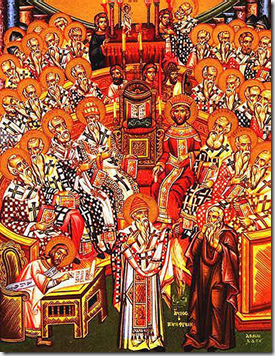

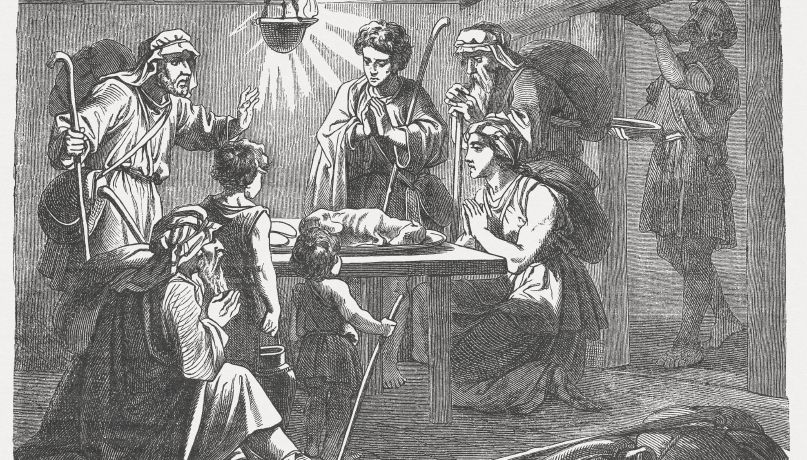
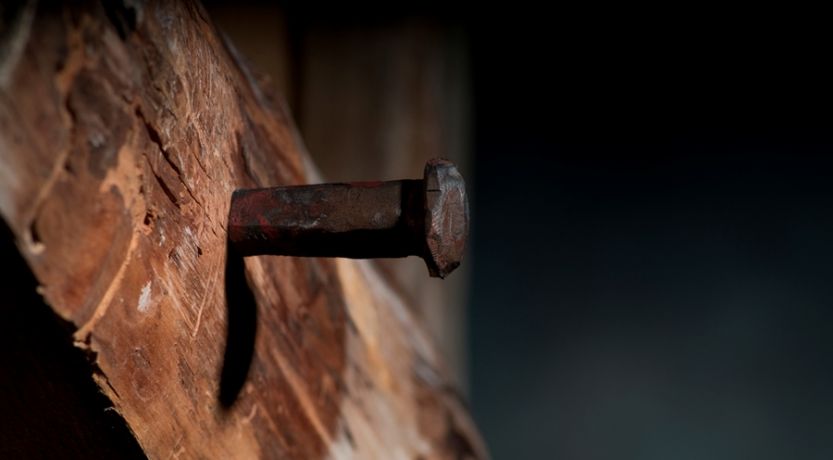


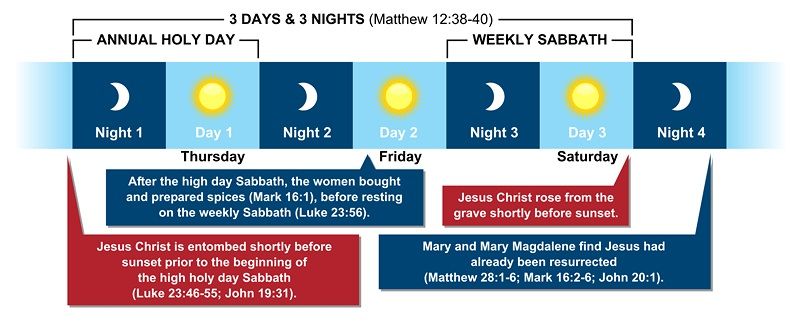
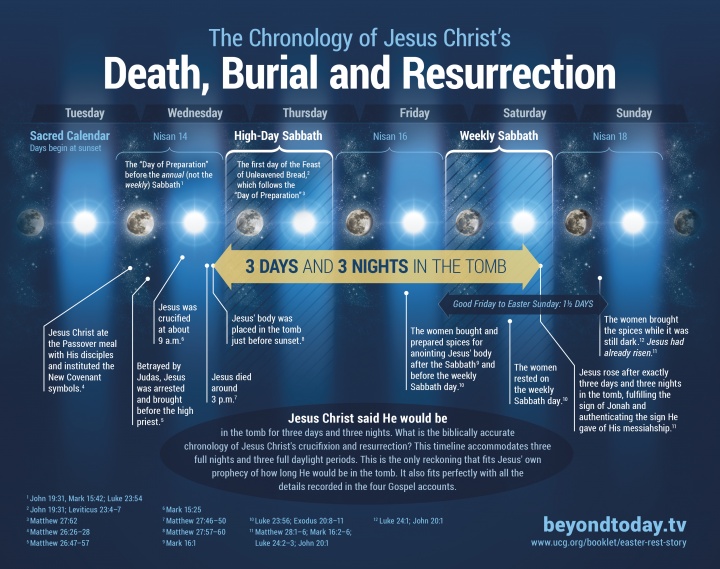 UCG.org
UCG.org






